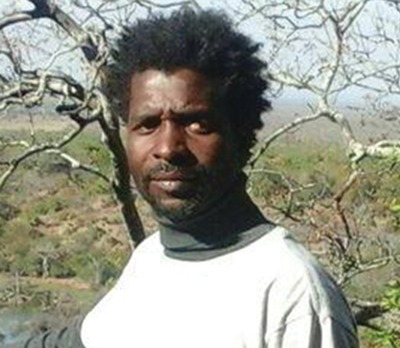
DERECK Chauvin, a white police officer, was early this week convicted of killing George Floyd by kneeling on his neck for nine minutes. The conviction was welcomed by many in United States but the lingering question of structural police brutality particularly against men and women of colour has not been resolved.
Paidamoyo Muzulu
The city of Minneapolis was turned into a war zone last year after the senseless murder of Floyd, which received international attention and a spur to Black Lives Matter movement. Race relations, like in the 1960’s, are once again at the top of United States politics. Racism has once again been proven to be structural.
Chauvin will be sentenced in the next eight weeks and, for now, it seems he will spend more than a decade in prison. However, one swallow does not make a summer and the United States still has more to do to protect black men and women.
Policing is a problem the world over. Locally, Zimbabwe, police have earned the tag of being among the most corrupt institutions. Corruption in the police force has become structural. Asking for bribes has become a common feature among the police officers.
Traffic police officers come easily to mind when one considers the bribes that are paid by motorists for one traffic breach or another. Unregistered and unroadworthy public service vehicles are on the roads despite the heavy police presence. Drivers and their conductors are not even afraid to pay the bribes openly as if it is a lawful thing.
The local patrol and investigating officers take hours if not weeks to attend a crime scene. Most use the excuse of not having a station car or fuel in delaying to attend to scenes. However, it is now an open secret that they attend scenes involving high profile personalities immediately.
It is not expensive to reform the police force. Sometimes it is the small things like having all officers display their force numbers. This was a common thing in the past. It will make it impossible for an officer to hide behind anonymity or his uniform. It can be made standard that police should always say their name and force number whenever they deal with civilians.
- Chamisa under fire over US$120K donation
- Mavhunga puts DeMbare into Chibuku quarterfinals
- Pension funds bet on Cabora Bassa oilfields
- Councils defy govt fire tender directive
Keep Reading
For traffic officers, new information communication technologies such as body cameras can solve most of the corruption and bribery. The body cameras should be on and remote-controlled from the police station control room. Anything the officer does while on duty is captured.
Cases of bribery or corruption in the police force should be swiftly investigated and prosecuted. This will bring back confidence among the citizens. The Treasury should look at buying bicycles for police to attend cases within a five-kilometre radius of their stations and one or two pool cars for each station.
Zimbabwe has over the years been having a muted debate on capital punishment. During the writing of the 2013 constitution, varied views were collected about the death sentence. A compromise position was reached which say death sentence shall only be passed on males between the ages 21 and 70 convicted of murder with actually intent.
For the first time since the foundation of the State in 1890, a large section of the population is exempt from the death penalty. All women and men below 21 and those above 70 are exempt. It is tempting to say the death penalty is now discriminatory on two grounds sex and age, but that is a debate for another day.
Last week, President Emmerson Mnangagwa decreed an amnesty to convicted criminals in several categories to empty overcrowded jails. The amnesty covered all female prisoners, juveniles, convicts sentenced to effective three years in prison, those at open prisons, those with medical conditions, those above 60 and those serving life sentences. However, there were many provisos such that one qualifies. These included having served a third of their sentence and not have convicted of a specified crime.
Specified crimes were listed as murder, treason, rape or sexual offences, carjacking, robbery, stock theft, public violence, trafficking in persons and unlawful possession of a firearm.
It is also noteworthy that Mnangagwa, who is against capital punishment, also commuted death sentences to life imprisonment. The clemency order read: “Commutation of death sentence to life imprisonment to be granted to all prisoners who have been on death row for at least eight years.”
This reprieve can only be set into perspective when one notes Zimbabwe last hanged convicted criminals in 2005. In other words, no prisoner has been hung in the past 16 years. It is important to further note the Constitutional Court has in the past commuted death sentences to life imprisonment in a case brought by Tendai Biti that convicts argued it was cruel and inhuman to live on death row for over 10 years.
By Independence Day, this year 1 949 prisoners had been released. These included 44 women and 1 905 men. The number included 19 convicts who were serving life sentences and three disabled persons.
A significant 18 death row inmates had their sentences commuted to life sentences. This should bring to the fore the debate on whether capital punishment should be abolished? This is an important debate, particularly because Zimbabwe has in reality not been carrying out any death sentences for 16 years now.
Policing and justice reforms are as important as any other reforms — political and economic — that the country has to implement. The police reforms will make not only citizens feel safer but also good for investment. Policing is an important pillar of justice. The sentencing of convicted persons is also important — it should be compassionate and inclined more to rehabilitation and reform.











